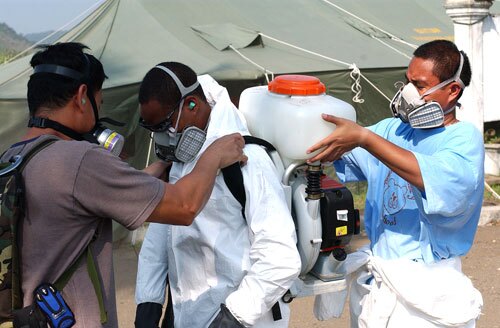California Farm Workers Seek Pesticide Protection

California farm workers want Congress to do more to protect them from hazardous pesticides. More than a dozen workers from California and other states are on Capitol Hill to urge such action.
Among them is Mily Trevino-Sauceda, a retired farm worker who now head ups a farm workers' advocacy group, Alianza Nacional de Campesinas.
"Looking at all of this and seeing how people are being harmed really angers you," she declared. "You know, we want to work to survive and this goes on? It's not fair, it's not fair."
Mily says many companies aren't following the regulations, and workers are signing documents they can't read or understand. California uses more pesticides than any other state, with a reported 177 million pounds of such substances used in 2010.
According to Mily, another concern is that many farm workers won't complain because they're afraid they will be fired.
"There are many workers also, they're undocumented, they don't have their immigration papers," she said. "The ones that know about that are the crew leaders, so if they complain they can not only be fired, but you know, immigration can be called on them."
The group is in D.C. to call on Congress to strengthen the Worker Protection Standard regulations. According to Anne Katten, project director for the California Rural Legal Assistance Foundation, that's an immediate goal.
"In the longer term we think the solution is to reduce pesticide use so there's less pesticide out there," she said. "But in the short term we urgently need to update the WPS, the Worker Protection Standard."
Katten said that includes more frequent and comprehensive pesticide safety training for farm workers, including information about the risk to farm worker families exposed to pesticides in the form of residues on workers' tools, clothes and skin.